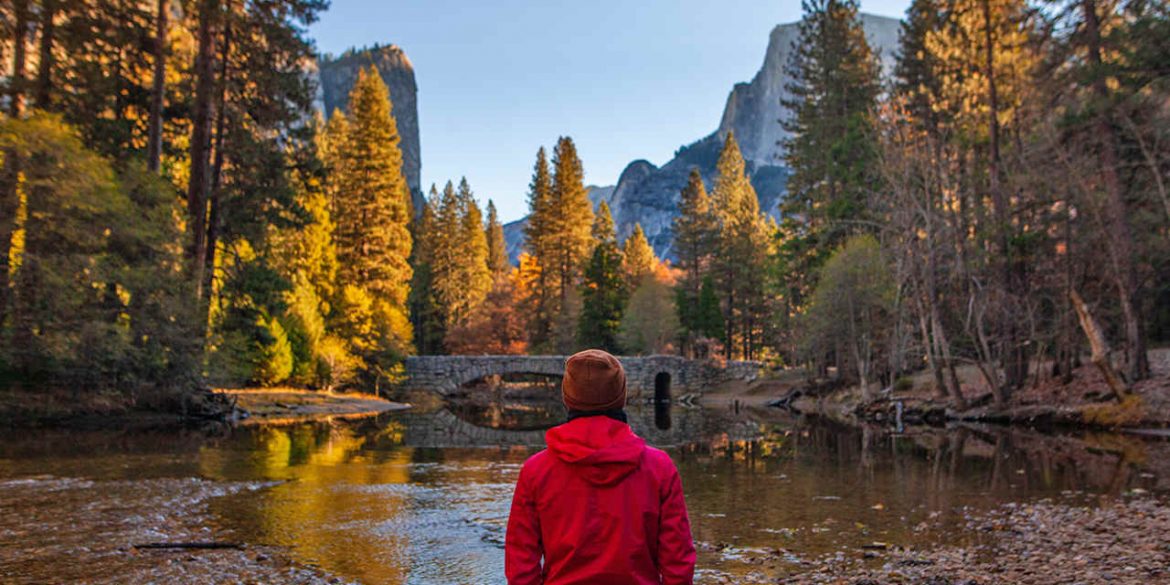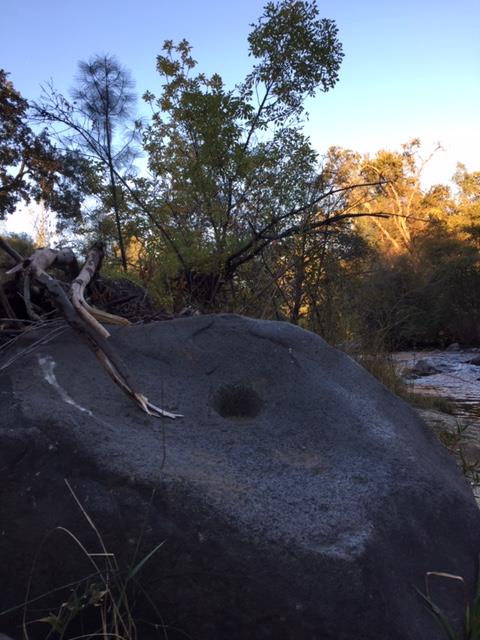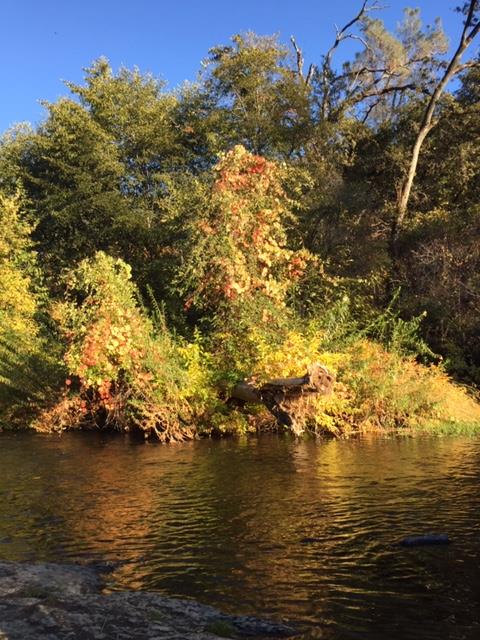An old woman is standing across the narrow park road as I come down a favorite section of trail. There is something unusual about her, a quality of complete openness and wonder. She waves as I pass, and the gesture seems to come from across the centuries rather than across the road.
The trees are resplendent with fall color. I’d been walking and running after a sitting at streamside induced a meditative state. Somewhat exuberantly I say, “lovely colors, huh?” The comment immediately feels jejune. She says nothing, just nods.
A portal to the past opens. The next day, hiking along the stream in the wilder Upper Park, I stop for a meditation as the last rays of the sun fall on the foliage and reflect off the rippling stream.
A hole in a large, granitic rock catches my eye. I wonder, how many years of grinding acorns (a staple of the people who lived in this area long before Europeans came) did it take to make that hole?
And more deeply, did the people who lived here for thousands of years before Europeans arrived leave a living trace of themselves through their love of the land, the animals and plants, and each other?
Passive watchfulness gathers intense, undirected attention in the mirror of nature and effortlessly strips away the accreted layers of conditioning from society, family and self. Perhaps then one feels a living trace of the innumerable generations that lived with the land rather than upon it as we do.
‘Proprioception’ refers to the bodily sensation of the location of one’s limbs in the space you occupy at any given moment. When you close your eyes with your arm held out and know exactly where it is, it’s because of proprioceptive cells in your joints.
I once heard the physicist-philosopher David Bohm say that he felt a basic problem in the evolution of higher thought is that we have no proprioception of it. That is, we don’t have a physical sensation of thought’s operation, and therefore don’t know what we’re doing and where we’re coming from.
To my mind, there is much to be said for this insight. However I feel that we can, through self-knowing, acquire proprioception for the movement of thought. Just as the body can, if we listen to it, tell us about our emotions, our emotions can, somewhat proprioceptively, provide a sensation of our core thought processes.
We first need to understand the difference between self-knowledge and self-knowing however. Self-knowing is a very different animal than self-knowledge. Self-knowledge is intellectual, accumulative, and of the past; self-knowing is felt, present, and negational.
As self-knowledge accretes, it encases and encrusts the heart in patterns and pathologies of a lifetime. Self-knowing, on the other hand, is a movement of negation, which frees the heart and mind for journeying into the infinite.
Direct perception of the actuality of death, which is happening every moment inside and outside the body, is essential to learning and growing as a human being.
This is not the death we fear, as a morbid finality, but the death that is in every breath, in the cycles of the seasons, and in the warp and woof of the cosmos itself. Thus death is actually a portal, rather than a projection of our greatest fears.
To make a friend of death one has to learn the art of negation. The self is a program, akin to the operating system of a computer, necessary up to point but malware beyond a point.
We fear ending, but there is no beginning without an ending. In perpetual ending there is perpetual beginning.
When one passively observes the movement of one’s thoughts and emotions in the mirror of nature, one realizes that there is no separate self in actuality, and that the ‘me’ is inextricably part of thought’s programming in the brain.
The silent mind in communion with death transcends death. Obviously that cannot happen as long as the busy, chattering mind dominates the brain. When the mind spontaneously falls silent in undirected attention however, the brain comes into direct contact with the wordless actualities of beauty, death and love.
As one grows proprioceptive of thought (that is, of the past and time), the accumulations of man, which are suffocating of the human spirit and preventing the growth of the heart, drop away.
In short, if one takes to time (without employing time) to observe without the observer, and thereby initiate the movement of negation, there are moments of complete freedom and tremendous insight.
Right living is a succession of complete moments. And each moment is potentially complete when we stop living in terms of the dead weight of psychological and emotional memory.
Martin LeFevre



